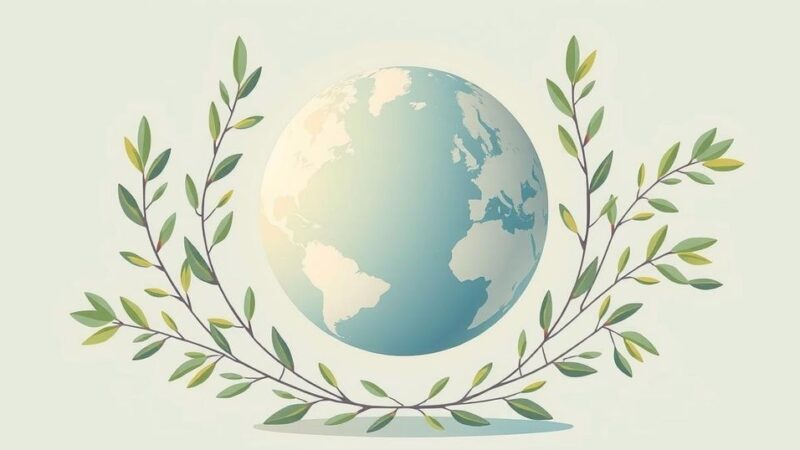Tunisia held its presidential election against a backdrop of skepticism, as President Kais Saied faces little opposition with his main rivals incarcerated or excluded. This election, the first since Saied’s consolidation of power, involves only three candidates, raising concerns over democratic integrity. Tunisia’s economic struggles and political repression complicate the electoral context, while Saied’s administration continues navigating both local and international challenges.
Tunisian citizens participated in a presidential election on Sunday, yet widespread skepticism prevailed regarding the possibility of electing a new leader. Current President Kais Saied encounters minimal competition, as his principal adversaries are either incarcerated or excluded from the electoral process. Having initially been elected five years ago in an environment of anti-establishment sentiment, this election marks the third since the removal of longtime President Zine El Abidine Ben Ali, the first leader to fall during the Arab Spring uprisings that affected several countries in the region. Once considered the beacon of the Arab Spring, Tunisia now grapples with significant challenges, including economic strife and political instability. Saied, an outsider in the political arena, secured his first term in 2019 by promising a revitalized Tunisia, emphasizing increased power for the youth and local governance. However, since assuming office, Saied has enacted measures that have concentrated power in his hands, leading to considerable outcry from pro-democracy proponents and opposition parties, which characterize his actions as a coup. The present election serves as a litmus test for public sentiment towards Tunisia’s dwindling democratic principles. Amid a backdrop of extensive political repression, many potential candidates were thwarted from running, with only three gaining approval from the electoral authority: Saied, Zouhair Maghzaoui—who has criticized Saied’s economic strategies—and Ayachi Zammel, a businessman facing legal challenges. The absence of prominent opposition figures, many of whom have been jailed or otherwise stifled for political dissent, has fueled calls from various opposition factions to boycott the election, asserting that the process is fundamentally fraudulent. The National Salvation Front, an alliance comprising both secular and Islamist parties, has denounced the election proceedings. As Tunisia’s economy stagnates, facing soaring unemployment at 16% and deepening reliance on international assistance, the government remains under scrutiny for its inability to address these systemic issues. The International Monetary Fund’s proposed bailout conditions have been met with resistance from Saied, further complicating economic recovery efforts. Simultaneously, the political climate has deteriorated, adversely impacting migration patterns, with Tunisia experiencing increased attempts to flee to Europe while simultaneously stigmatizing migrants. On the international front, Tunisia continues to navigate relations with traditional Western allies while exploring new partnerships. Influenced by a populist approach, President Saied emphasizes national sovereignty, seeking to redefine Tunisia’s role in regional affairs. Despite escalating tensions and challenges, European stakeholders maintain collaborative ties with Saied, particularly surrounding migration management policies.
The political landscape in Tunisia has undergone drastic changes since the 2011 Arab Spring, which initially heralded hope for democratic governance. The overthrow of long-standing dictatorship in Tunisia was followed by the establishment of a new democratic constitution and various political reforms. However, subsequent governments have struggled with economic troubles, political divisions, and sporadic violence, failing to capitalize on the momentum of the revolution. Since his election, President Kais Saied has significantly altered Tunisia’s political framework, consolidating power to an extent that has alarmed pro-democracy advocates and opposition groups alike. The current election reflects these ongoing tensions as well as the public’s waning trust in the electoral process.
The presidential election in Tunisia underscores a complex interplay of political strife and public disillusionment within a nation once celebrated for its democratic aspirations following the Arab Spring. With limited competition and a climate of fear permeating the political environment, President Kais Saied appears firmly positioned to secure another term. The implications of this election extend beyond domestic politics, reflecting broader regional challenges and the precarious nature of Tunisia’s post-revolutionary trajectory.
Original Source: www.euronews.com






